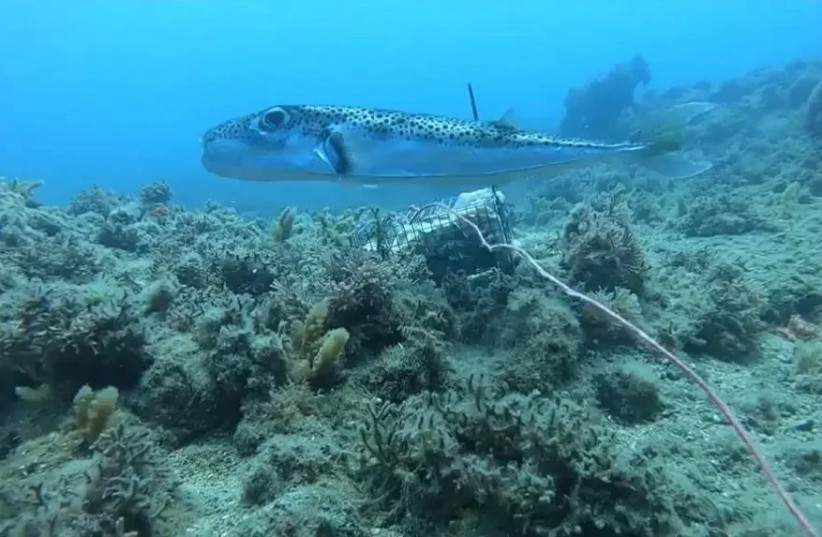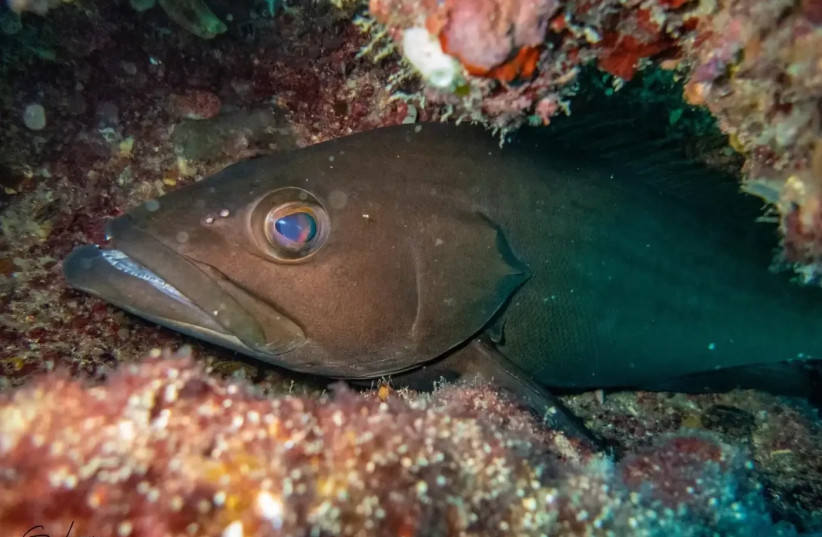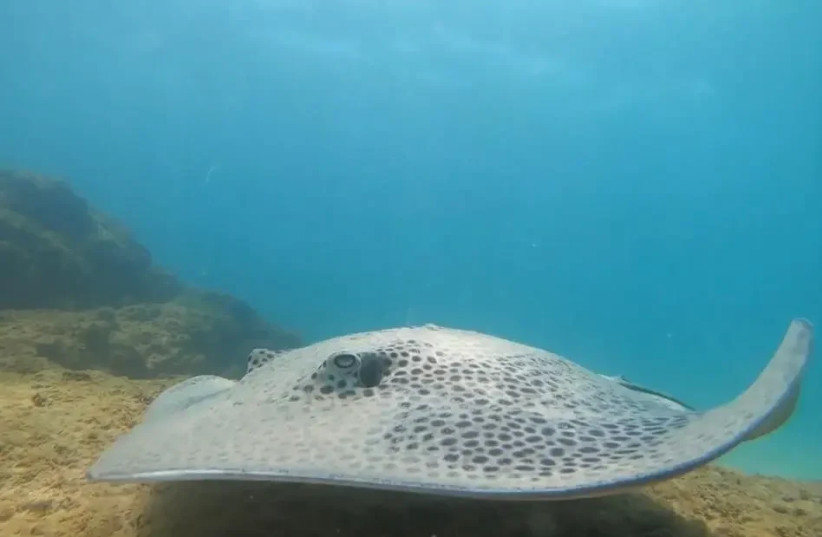Every two years, the Nature and Parks Authority conducts an extensive marine survey (Bioblitz) to assess fish populations, their size, invertebrates, and algae. This survey takes place in both marine reserves and control areas outside these reserves, enabling a comparison of protected and non-protected zones over time.
Remarkably, the recent survey showcased positive changes that have not been witnessed before. For instance, at Dor Bonim Beach, stingray fish sightings were reported for the first time. Shekmona witnessed the presence of unusually large echinoderm flocks. The Authority attributes these developments to the reduced sea traffic caused by the war, resulting in enhanced visibility and larger fish quantities during the month-long calm sea period coinciding with Sukkot and the war outbreak.

The spring breeding season, favored by relatively warmer temperatures, likely contributed to increased fish reproduction and survival rates. The Nature and Parks Authority emphasizes the effectiveness of marine reserves and fishing oversight in preserving marine ecosystems.
The Fall 2023 survey, initially scheduled for October 8, was halted due to the war, nicknamed "Black Sabbath" and the "Iron Swords War." Subsequently, a decision was made to conduct a scaled-down version of the survey, focusing solely on fish populations. This collaborative effort involved the Marine Ecology Laboratory of Tel Aviv University, led by Prof.
Yonatan Belmakar and managed by Shahar Malamud. Early findings from the survey have been highly promising, according to Dr. Ruthi Yahel, a marine ecologist at the Nature and Parks Authority. The presence of a red spiny plover flock, which serves as a crucial predator in the Kamona marine reserve, indicates the reserve's robust condition and successful functioning.

Amidst challenging times, this serves as a small glimmer of hope. It exemplifies how nature endures and continues to be safeguarded by reserves, fostering the expectation of quieter days when people can venture out and appreciate it.
During this period, various locations in the center and north of Israel's coast witness a significant presence of trigons and young bats within the reserves. The Nature and Parks Authority emphasizes that harming animals, plants, or inanimate objects within nature reserves is strictly prohibited.

Fishing is also prohibited within marine reserves, except for shore fishing using a rod, which is allowed in specific areas and under certain conditions. Reserves where fishing is permitted display appropriate signage.
If any damage occurs to a reserve or its protected natural assets, please contact the information center of the Nature and Parks Authority at 3639*.
